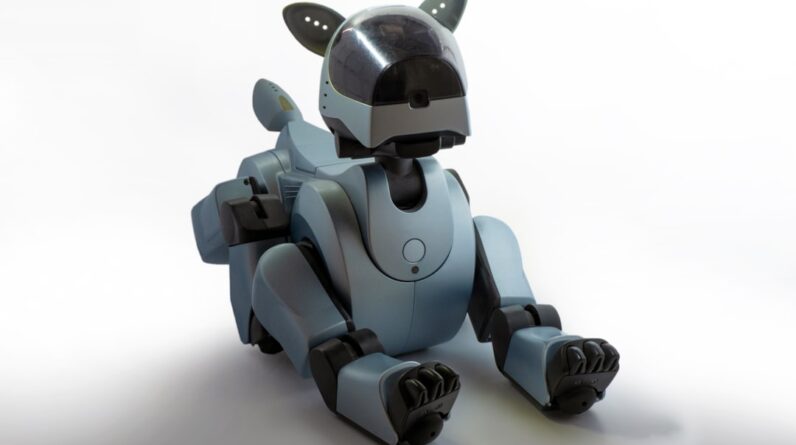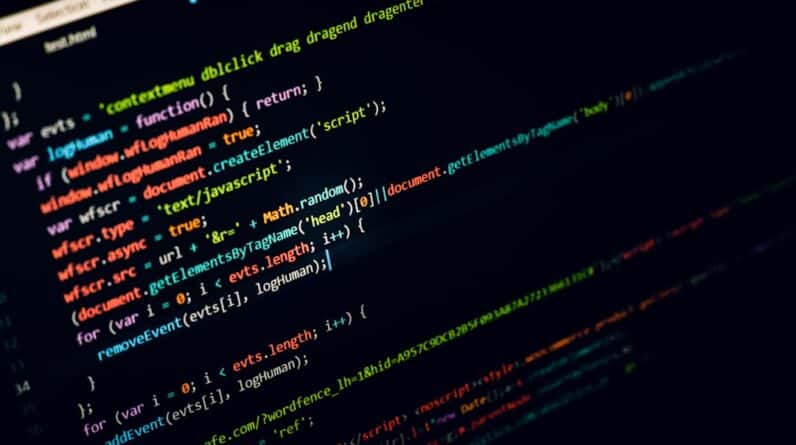As you step into the world of manufacturing, you may find yourself surrounded by a landscape that is rapidly evolving due to technological advancements. Among these innovations, artificial intelligence (AI) stands out as a transformative force. AI encompasses a range of technologies that enable machines to mimic human intelligence, learning from data and making decisions with minimal human intervention.
In the manufacturing sector, AI is not just a buzzword; it is a catalyst for change, reshaping processes, enhancing productivity, and driving innovation. The integration of AI into manufacturing processes is not merely about automation; it represents a paradigm shift in how products are designed, produced, and delivered. From smart factories equipped with interconnected devices to advanced algorithms that optimize production schedules, AI is redefining the manufacturing landscape.
As you delve deeper into this topic, you will discover how AI is revolutionizing various aspects of manufacturing, from production efficiency to quality control, predictive maintenance, and supply chain management.
Key Takeaways
- AI in manufacturing is revolutionizing the industry by improving production efficiency, quality control, predictive maintenance, supply chain optimization, and integration with robotics.
- AI has a significant impact on production efficiency by optimizing processes, reducing downtime, and improving overall equipment effectiveness.
- AI plays a crucial role in quality control and inspection by identifying defects, reducing errors, and ensuring product consistency and reliability.
- AI enables predictive maintenance in manufacturing by analyzing equipment data to predict and prevent potential failures, reducing downtime and maintenance costs.
- AI helps optimize supply chain management by forecasting demand, improving inventory management, and enhancing logistics and distribution processes.
The Impact of AI on Production Efficiency
When you consider production efficiency, the role of AI becomes increasingly significant. By leveraging machine learning algorithms and data analytics, manufacturers can streamline operations and reduce waste. AI systems can analyze vast amounts of data in real-time, identifying bottlenecks and inefficiencies that may not be immediately apparent to human operators.
This capability allows for more informed decision-making and the implementation of strategies that enhance overall productivity. Moreover, AI can facilitate adaptive manufacturing processes. Imagine a scenario where production lines can adjust automatically based on real-time demand forecasts or equipment performance data.
This level of responsiveness not only minimizes downtime but also ensures that resources are allocated optimally. As you explore the impact of AI on production efficiency, you will see how it empowers manufacturers to achieve higher output levels while maintaining quality standards.
The Role of AI in Quality Control and Inspection

Quality control is a critical aspect of manufacturing that directly affects customer satisfaction and brand reputation. With the introduction of AI, quality inspection processes have become more precise and efficient. Traditional methods often rely on human inspectors who may overlook defects or inconsistencies due to fatigue or subjective judgment.
In contrast, AI-powered systems utilize computer vision and machine learning to detect anomalies with remarkable accuracy. As you delve into this area, consider how AI can analyze images of products at various stages of production, identifying defects that might escape the human eye. These systems can learn from historical data, continuously improving their detection capabilities over time.
By implementing AI in quality control, manufacturers can reduce the rate of defective products, minimize rework costs, and enhance overall product reliability. This not only leads to cost savings but also fosters customer trust and loyalty.
AI and Predictive Maintenance in Manufacturing
Predictive maintenance is another area where AI shines in the manufacturing sector. Traditional maintenance practices often rely on scheduled inspections or reactive measures after equipment failure occurs. However, with AI-driven predictive maintenance, you can anticipate potential equipment failures before they happen.
By analyzing data from sensors embedded in machinery, AI algorithms can identify patterns and anomalies that indicate wear and tear. Imagine being able to schedule maintenance activities based on actual equipment performance rather than arbitrary timelines. This proactive approach minimizes unplanned downtime and extends the lifespan of machinery.
As you explore the benefits of predictive maintenance, you will find that it not only enhances operational efficiency but also reduces maintenance costs significantly. By investing in AI technologies for predictive maintenance, manufacturers can create a more resilient production environment.
AI and Supply Chain Optimization
In today’s interconnected world, supply chain optimization is crucial for manufacturers seeking to remain competitive. AI plays a pivotal role in enhancing supply chain efficiency by providing insights that drive better decision-making. With the ability to analyze vast datasets from various sources—such as market trends, supplier performance, and customer demand—AI can help you make informed choices about inventory management and logistics.
As you consider the implications of AI on supply chain optimization, think about how it can improve demand forecasting accuracy. By utilizing machine learning algorithms that analyze historical sales data and external factors like economic indicators or seasonal trends, manufacturers can better align their production schedules with market demand. This alignment reduces excess inventory costs and ensures timely delivery to customers, ultimately enhancing satisfaction and loyalty.
The Integration of AI with Robotics in Manufacturing

The integration of AI with robotics marks a significant advancement in manufacturing capabilities. Robots equipped with AI technologies can perform complex tasks with precision and adaptability that traditional automation systems cannot match. As you explore this integration, consider how collaborative robots (cobots) work alongside human operators, enhancing productivity while ensuring safety.
AI-powered robots can learn from their environment and adapt their actions based on real-time feedback. This flexibility allows them to handle a variety of tasks—from assembly to packaging—without requiring extensive reprogramming. As you delve deeper into this topic, you will see how the synergy between AI and robotics not only boosts efficiency but also opens up new possibilities for innovation in product design and manufacturing processes.
The Benefits and Challenges of Implementing AI in Manufacturing
While the benefits of implementing AI in manufacturing are substantial, it is essential to acknowledge the challenges that come with this transition. On one hand, AI offers increased efficiency, improved quality control, enhanced predictive maintenance, and optimized supply chains. These advantages can lead to significant cost savings and a competitive edge in the market.
On the other hand, integrating AI into existing manufacturing systems requires careful planning and investment. You may encounter challenges related to data management, workforce training, and technology integration. Ensuring that your team is equipped with the necessary skills to work alongside AI technologies is crucial for successful implementation.
Additionally, addressing concerns about data security and privacy is paramount as manufacturers increasingly rely on interconnected systems.
The Future of AI in Manufacturing: Opportunities and Trends
As you look toward the future of AI in manufacturing, it becomes clear that opportunities abound for those willing to embrace this technology. The ongoing advancements in machine learning, natural language processing, and robotics will continue to shape the industry landscape. You may find that emerging trends such as digital twins—virtual replicas of physical assets—will enable manufacturers to simulate processes and optimize operations before implementing changes in the real world.
Furthermore, as sustainability becomes a focal point for businesses globally, AI can play a vital role in promoting eco-friendly practices within manufacturing processes. By optimizing resource usage and minimizing waste through intelligent analytics, manufacturers can contribute to a more sustainable future while enhancing their bottom line. In conclusion, as you navigate the evolving landscape of manufacturing powered by artificial intelligence, you will discover a wealth of opportunities for innovation and growth.
Embracing these technologies will not only enhance operational efficiency but also position your organization as a leader in an increasingly competitive market. The journey may come with challenges, but the rewards of integrating AI into manufacturing processes are well worth the effort.
Artificial Intelligence: A New Era in Manufacturing explores the impact of AI on the manufacturing industry, highlighting its potential to revolutionize processes and increase efficiency. For further insight into the real-world applications of AI in daily life, readers can check out the article Beyond the Hype: The Real-World Applications of AI in Daily Life. This article delves into how AI is being utilized in various aspects of everyday life, showcasing its versatility and widespread adoption across different sectors.
FAQs
What is artificial intelligence (AI) in manufacturing?
Artificial intelligence in manufacturing refers to the use of advanced technologies such as machine learning, robotics, and data analytics to automate and optimize various processes in the manufacturing industry.
How is AI transforming the manufacturing industry?
AI is transforming the manufacturing industry by enabling predictive maintenance, quality control, supply chain optimization, and autonomous production processes. It also helps in reducing downtime, improving efficiency, and increasing overall productivity.
What are the benefits of using AI in manufacturing?
The benefits of using AI in manufacturing include improved operational efficiency, reduced production costs, enhanced product quality, better resource utilization, and the ability to adapt to changing market demands.
What are some examples of AI applications in manufacturing?
Some examples of AI applications in manufacturing include predictive maintenance to prevent equipment failures, computer vision for quality inspection, autonomous robots for material handling, and AI-powered demand forecasting for inventory management.
What are the challenges of implementing AI in manufacturing?
Challenges of implementing AI in manufacturing include high initial investment costs, integration with existing systems, data security and privacy concerns, and the need for specialized skills and training for the workforce.
How is AI impacting the workforce in the manufacturing industry?
AI is impacting the workforce in the manufacturing industry by automating repetitive tasks, creating new job roles focused on AI implementation and maintenance, and requiring upskilling of existing employees to work alongside AI technologies.






